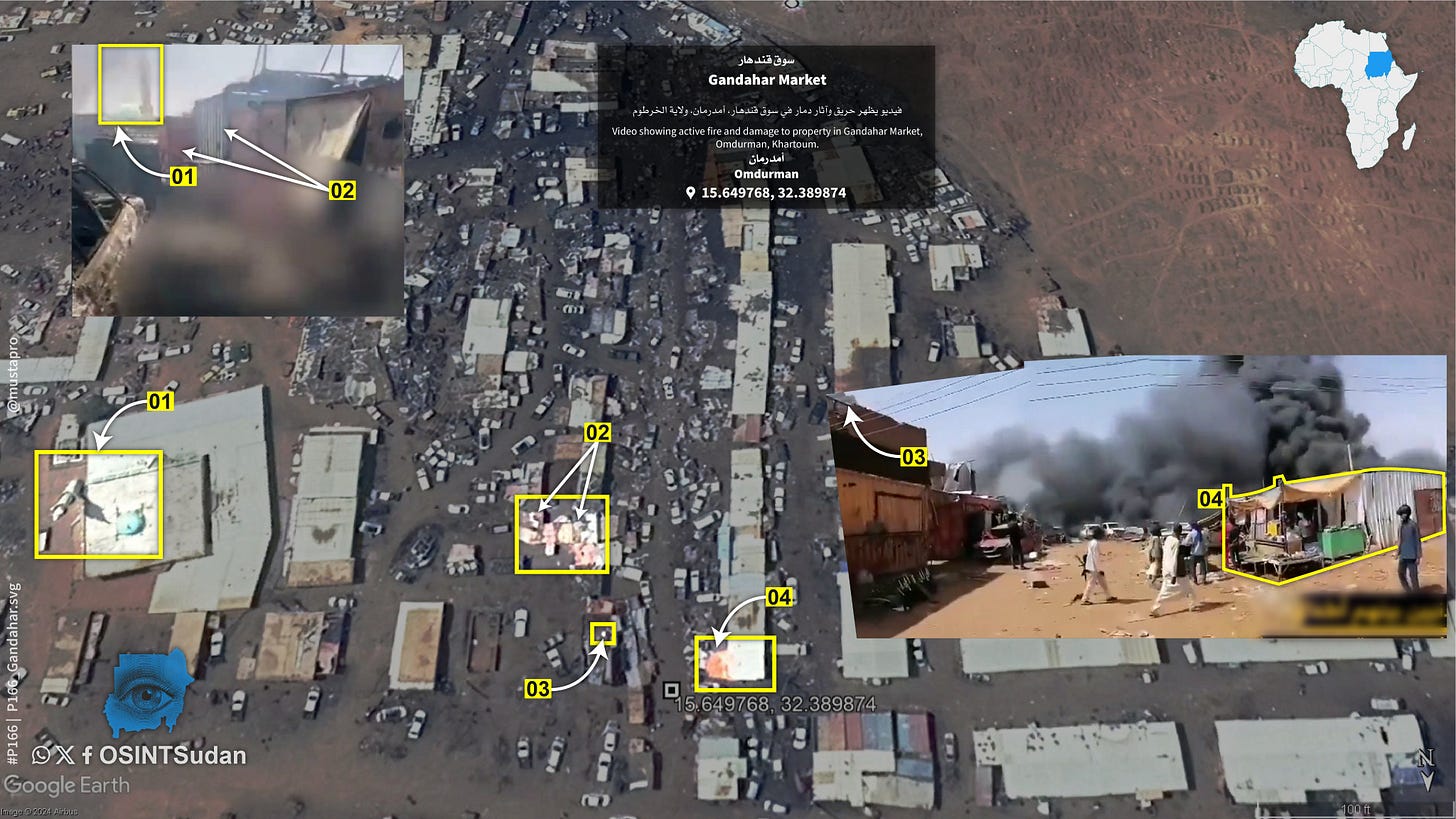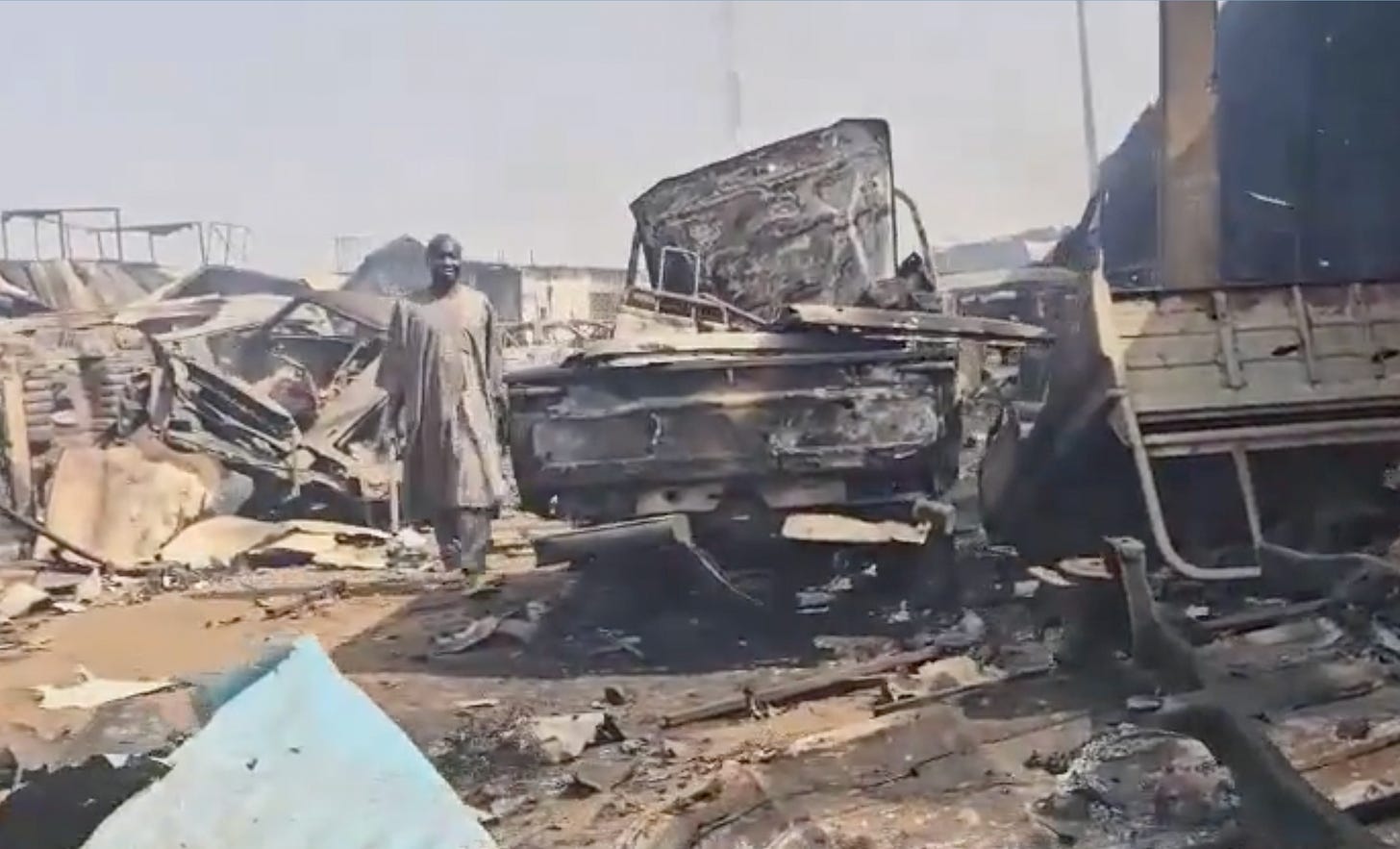Blast rips through Omdurman market
Alleged airstrike causes intense blaze, killing at least a dozen
Gandahar Market in Ombada, just west of Omdurman, suffered heavy damage in a fire on Saturday, May 25, allegedly caused by an airstrike by the Sudan Armed Forces.
The affected area contained many makeshift auto repair shops and possibly stores of petrol, paint, and other flammable products.
Using geolocation we were able to verify the location of the incident (15.649768, 32.389874), and satellite images corroborated the date, but we cannot confirm an exact death toll or the cause of the damage.
The Rapid Support Forces (RSF), which control the area and produced videos of the aftermath of the blast, said that “dozens of civilians, including children, were killed in an aerial bombardment by the Sudan Armed Forces.” Raw videos of the scene afterwards show at least 12 bodies, many of them charred beyond recognition.
On social media, a neighbor of one of the victims wrote,
“Today is a sad day for my neighbors. They lost an unarmed citizen, a father, a husband, a brother, and a brother-in-law in a missile strike in the Gandahar market, Omdurman... One of his daughters in high school is in a state of disbelief because she cannot understand that her father has come in the morning and will never come again. She is crying... she is silent. ‘My father went away to get me medicine. I just want my father.’ May God give them patience and console them.”

This was the second attack on the Gandahar area in May. A few weeks ago, affiliated social media accounts circulated video of an intense fire near the Bashair Petrol Station, located at the southern edge of Gandahar Market.
The cameraman blamed a drone for the attack. RSF fighters are seen rolling away a barrel of petrol. At the end of the video there is a large explosion. These factors suggest the Sudan Armed Forces might have targeted the area because it was used for storing or trading fuel smuggled into Omdurman.
A number of civilians nevertheless may have died in the attack. Drones and warplanes previously have attacked several other markets in RSF-occupied parts of Greater Khartoum, including at the Central Market, Sports City, Hillat Koko, and Kalakla.
Millions of people have fled Khartoum, heading to other Sudanese cities where they live in camps, schools, rented dwellings, or with extended family. But others remained behind, especially the poor. The collapse of the national economy has left them economically vulnerable and dependent on a war economy dominated by the RSF.




